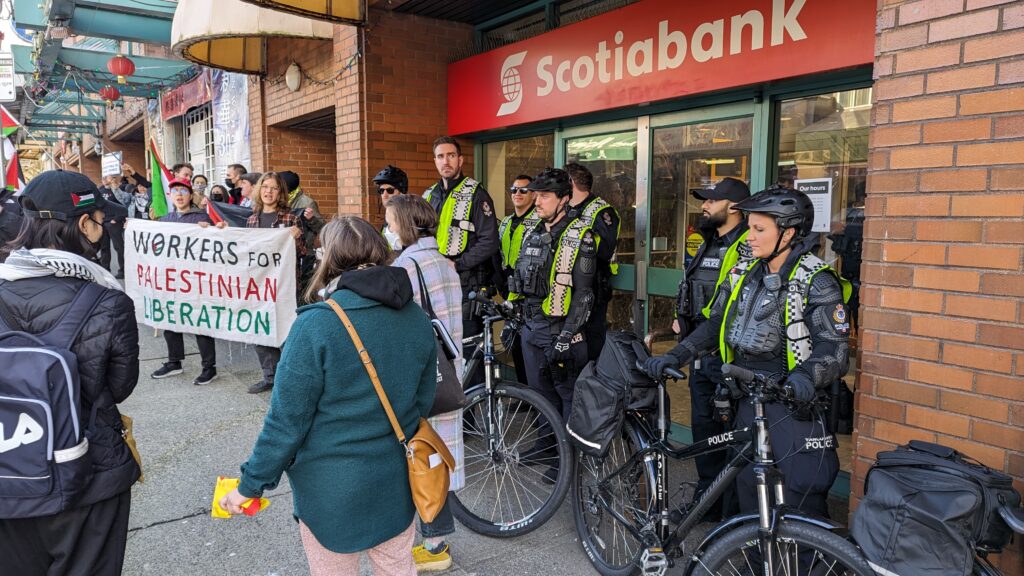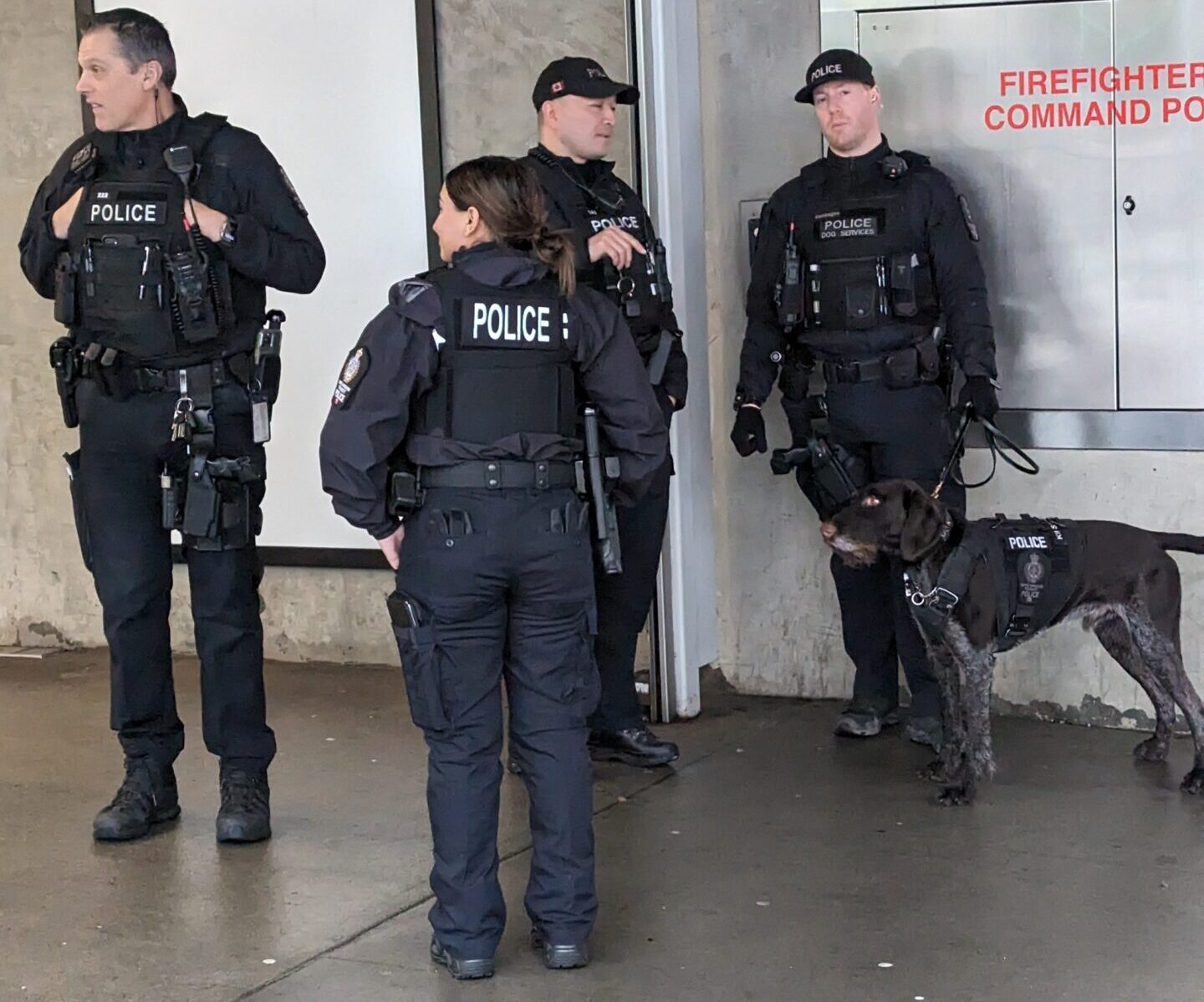On February 13, Vancouver Mayor Ken Sim announced an increase to the police budget and a new task force aimed at combatting organized crime in the Downtown Eastside. This will cost taxpayers an extra $5 million per year.
With soon-to-retire Vancouver Police Chief Adam Palmer at his side, the mayor announced “Task Force Barrage” as part of the city’s plan to transform the Downtown Eastside. The plan includes a pause on new supportive housing units for the area where Vancouver’s homeless population, officially counted at more than 2,400, is concentrated.
The North Star spoke with Garth Mullins, a member of the Vancouver Area Network of Drug Users and host of the Crackdown podcast, about the mayor’s announcement.
“There’s always been a lot of police on the Downtown Eastside, but it seems like there’s a lot more,” said Mullins. “They say they’re going to be targeting organized crime. But organized crime don’t live on the Downtown Eastside, right? Like the kingpins don’t live in SROs [single-room occupancy hotels].”
Mullins and other advocates say this increase in policing won’t affect the big time players who reap the profits of the criminalized drug trade, but will increase the number of street-level dealers and users who get caught up in the cycle of criminalization, incarceration, poverty and homelessness.
Green Party City Councillor Peter Fry agrees:
“The real challenge is that they’re further marginalizing already marginalized people. And I worry that the impacts will be quite severe when you take this in tandem with the mayor’s statement that said he wants no net new supportive housing with the intention they have for the Downtown Eastside to massively up zone, and remove below-market housing. This is a recipe for absolute disaster and indeed people will die as a result of it and it’s a very politically motivated approach,” he told The North Star.

“The people dealing drugs on the Downtown Eastside are at the bottom of the pyramid,” explained Mullins. “They’re subsistence dealers who are just trying to support their own habit. So those people are going to be much more targeted if the police are to be believed. And from past enforcement actions I’ve seen before, it just seems like everybody gets hassled.”
Mullins cast doubt on the reasons given for the increase in policing:
“I’m not sure what the problem is they’re trying to address. They say it’s crime and street disorder and that sort of thing. I just don’t see how policing really achieves these ends.”
He says these actions by the municipal government remind him of the “old days of the drug war,” a reference to the 1990s and earlier, when a law-and-order approach to drug use severely limited access to health care and harm reduction resources for people who use drugs. This led to the Downtown Eastside having the highest rates of HIV infection outside of Sub-Saharan Africa and thousands of overdose deaths.
“For a few years there, we had at least room for arguments that policing wasn’t the best response. But it seems like we’ve forgotten all that now. And we’re just back to those law-and-order days where you just throw more cops and more cops and more cops at a social problem. We have so many decades of evidence that it doesn’t work to solve the social problems. And for the people who are criminalized, it just makes our lives much worse.”
During the Vancouver municipal elections in 2022, the Vancouver Police Union endorsed the ABC Party and its candidate, Ken Sim, for Mayor of Vancouver. This was an unprecedented move by the association, which has historically remained neutral in civic elections.
The previous City Council had, in 2021, attempted to cut the police budget by $5.7 million, a decision that the provincial NDP government overturned. Meanwhile, the ABC promised to hire 100 new police and 100 mental health nurses. The press release for Operation Barrage confirms that indeed 200 police have been hired, but only 35 mental health workers.
“[The Police budget] has ballooned and ballooned in the long years of the drug war,” said Mullins, “and I think it’s gotten to the point where nobody has any control over it. The police demand money, and the council gives it to them. If the city council doesn’t give them exactly what they want, they go to the province, and the province overrules them. So there’s really no democratic controls anymore on the police budget. It seems that there’s no democratic controls on the police.”

A Vancouver Police Board report accounting for the first half of 2024 found that the VPD had gone 5.2% over budget for that period, an amount over $10 million. The report cited costs of policing Palestine solidarity protests and removing an encampment in the Downtown Eastside as the reasons for the increased costs.
In the latter half of 2024, that overrun turned into a budget increase of $11.2 million on top of the year’s $443 million budget, making it one of the highest law enforcement budgets in the country.


Be part of the conversation!
Only subscribers can comment. Subscribe to The North Star to join the conversation under our articles with our journalists and fellow community members. If you’re already subscribed, log in.